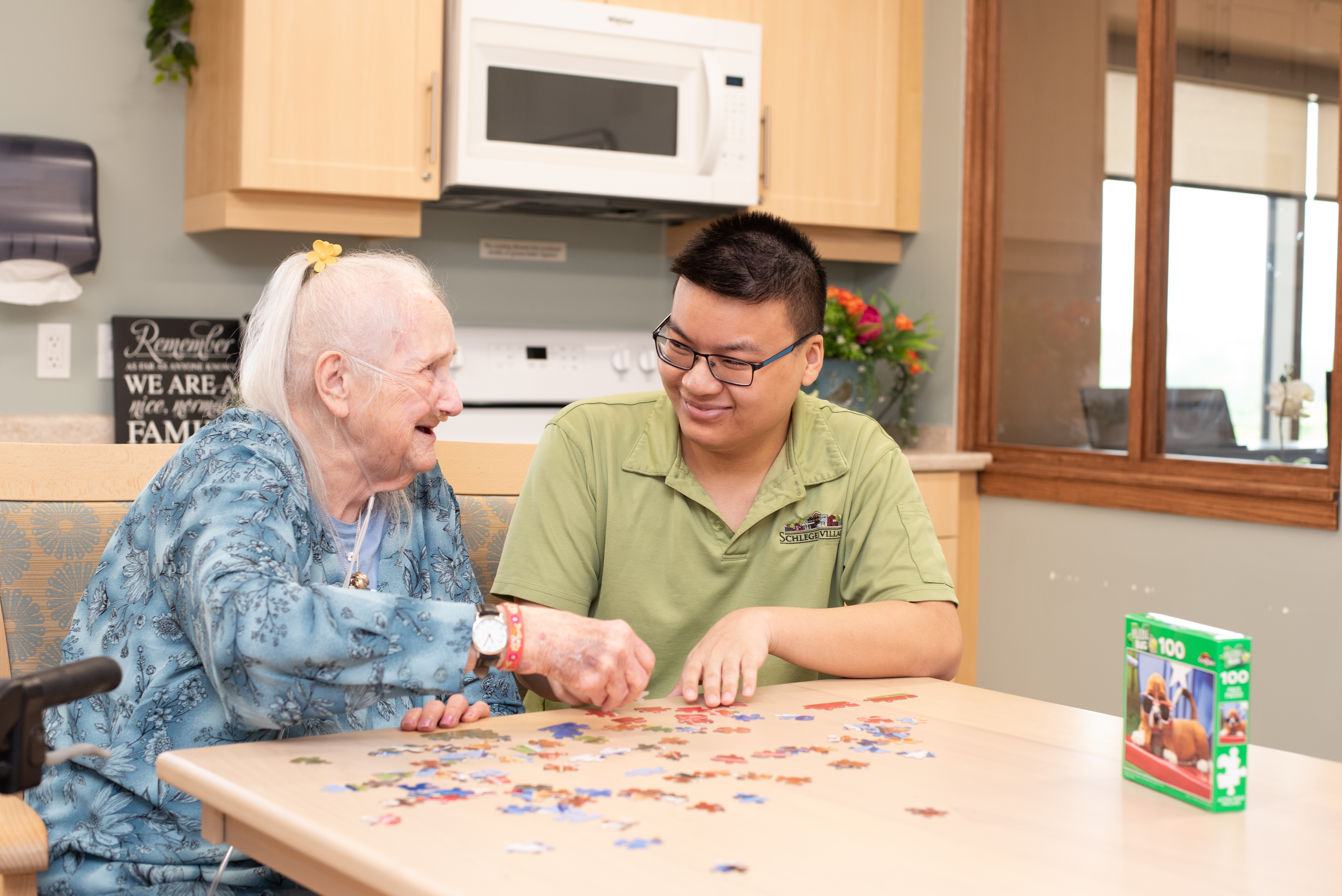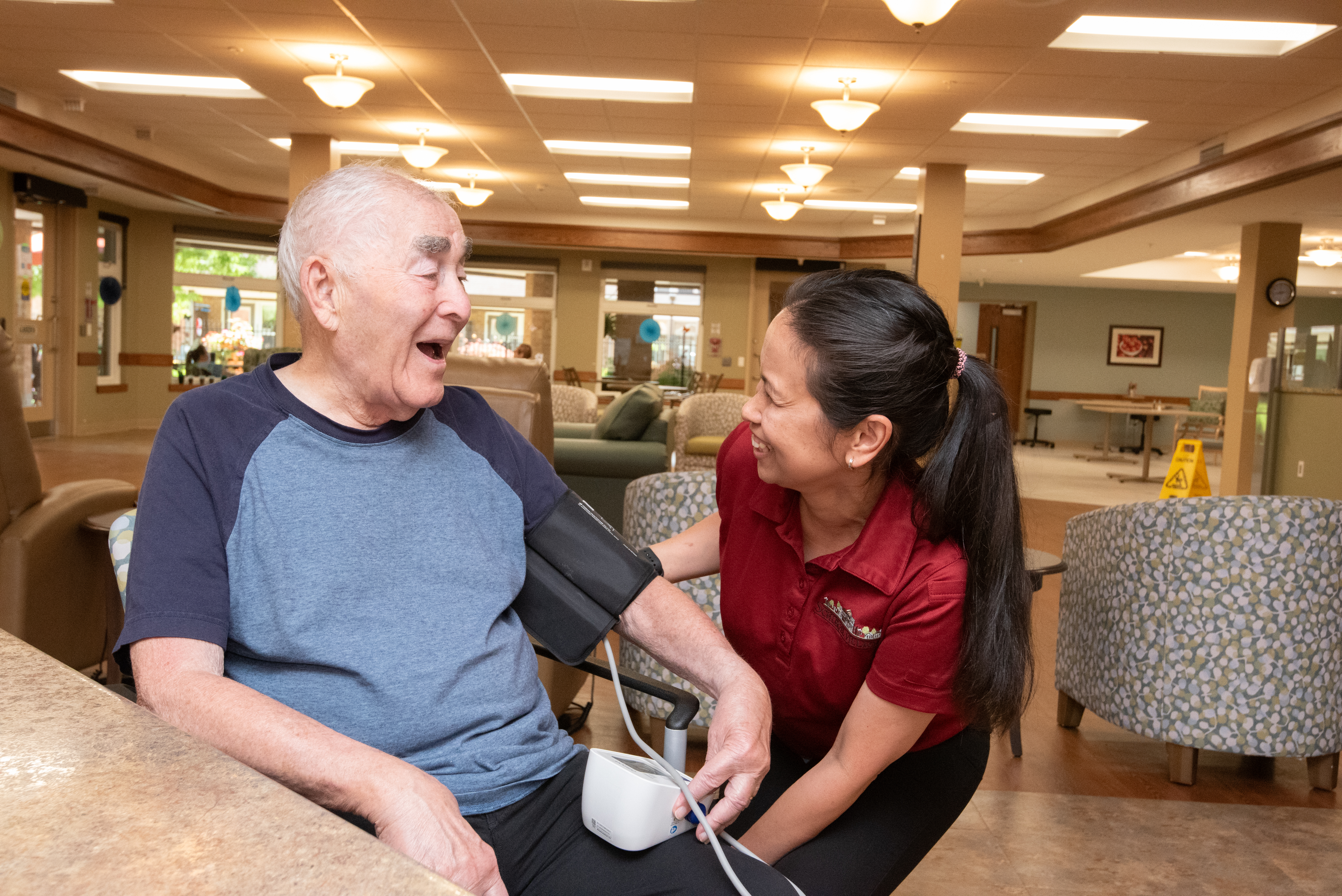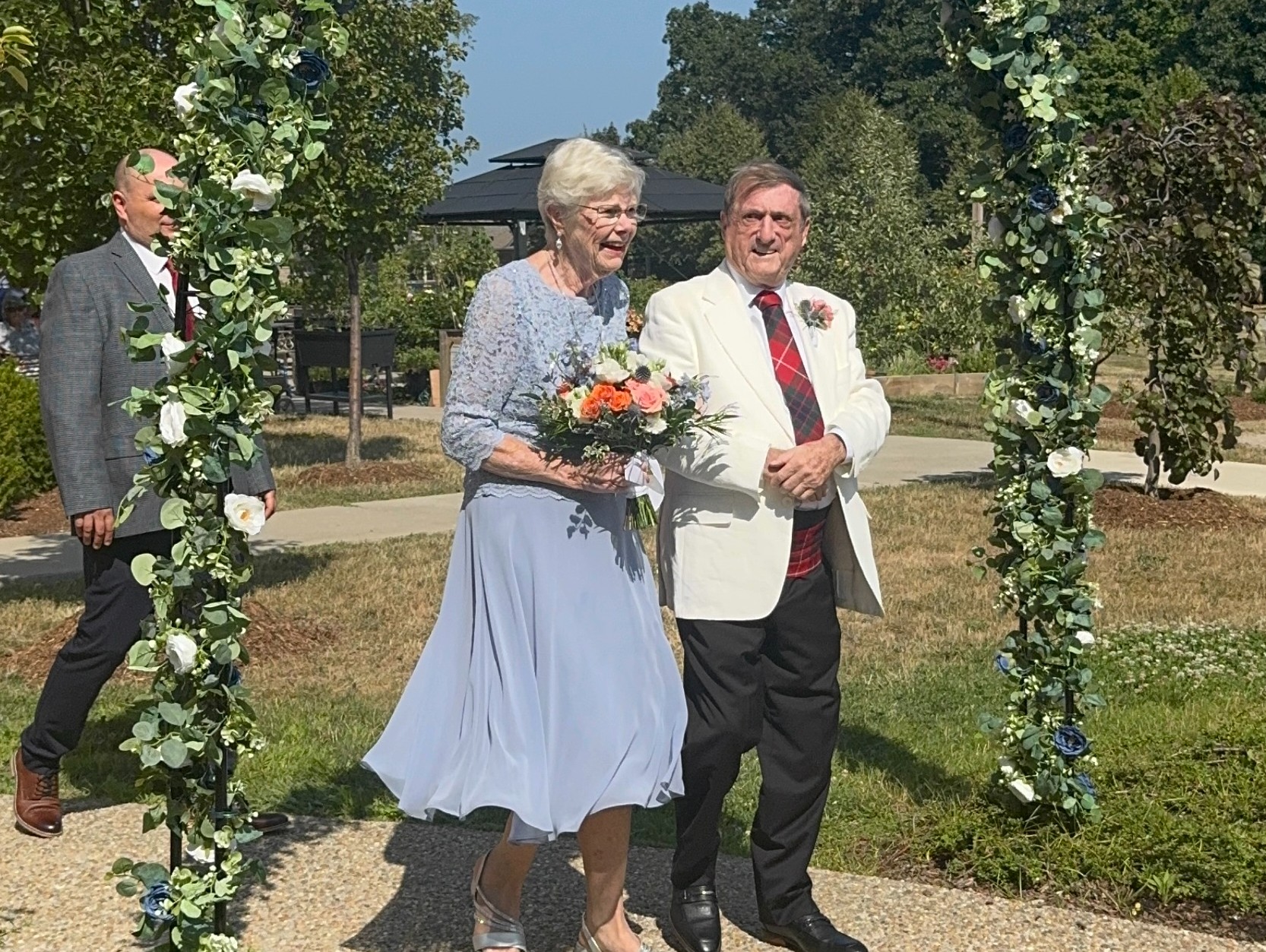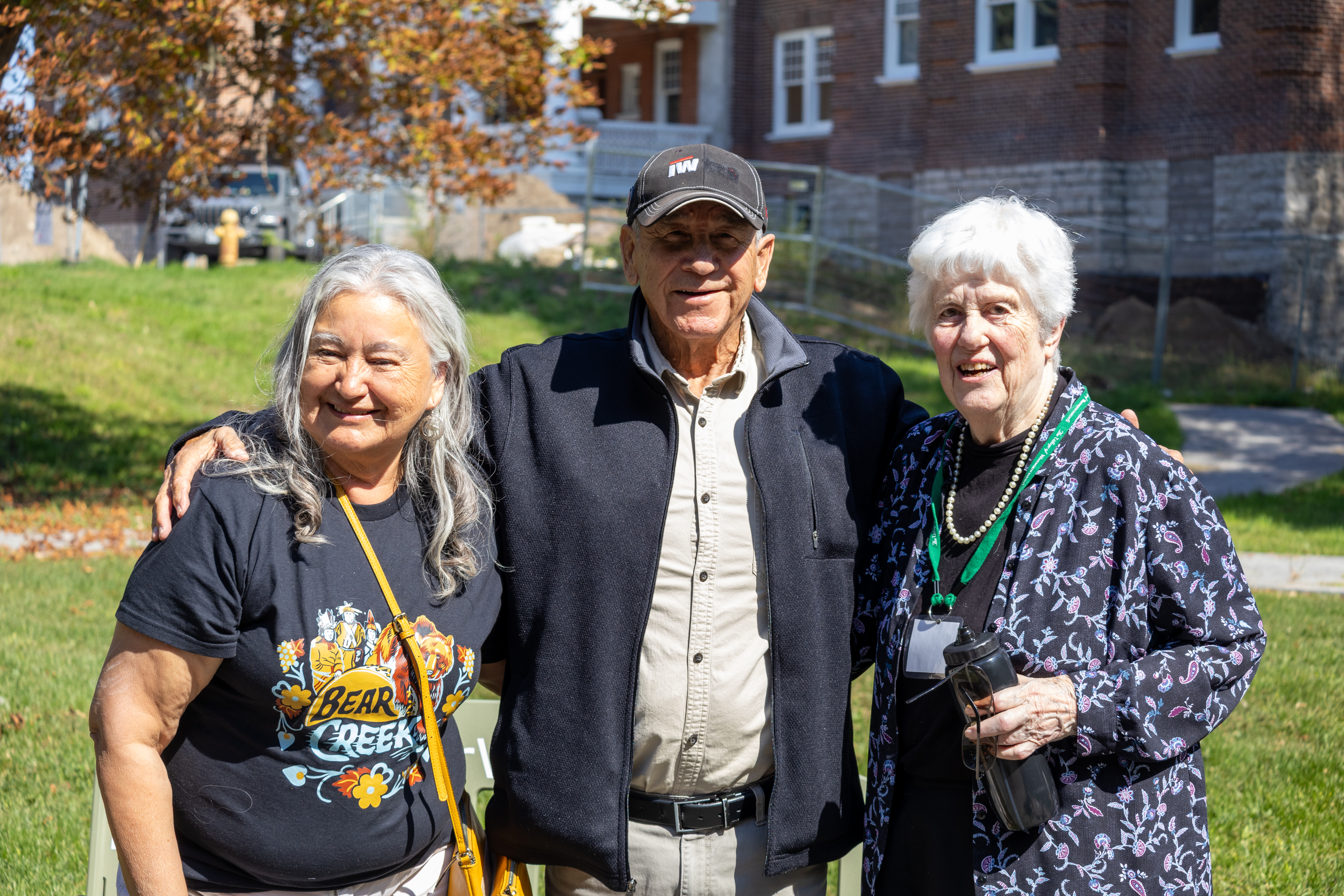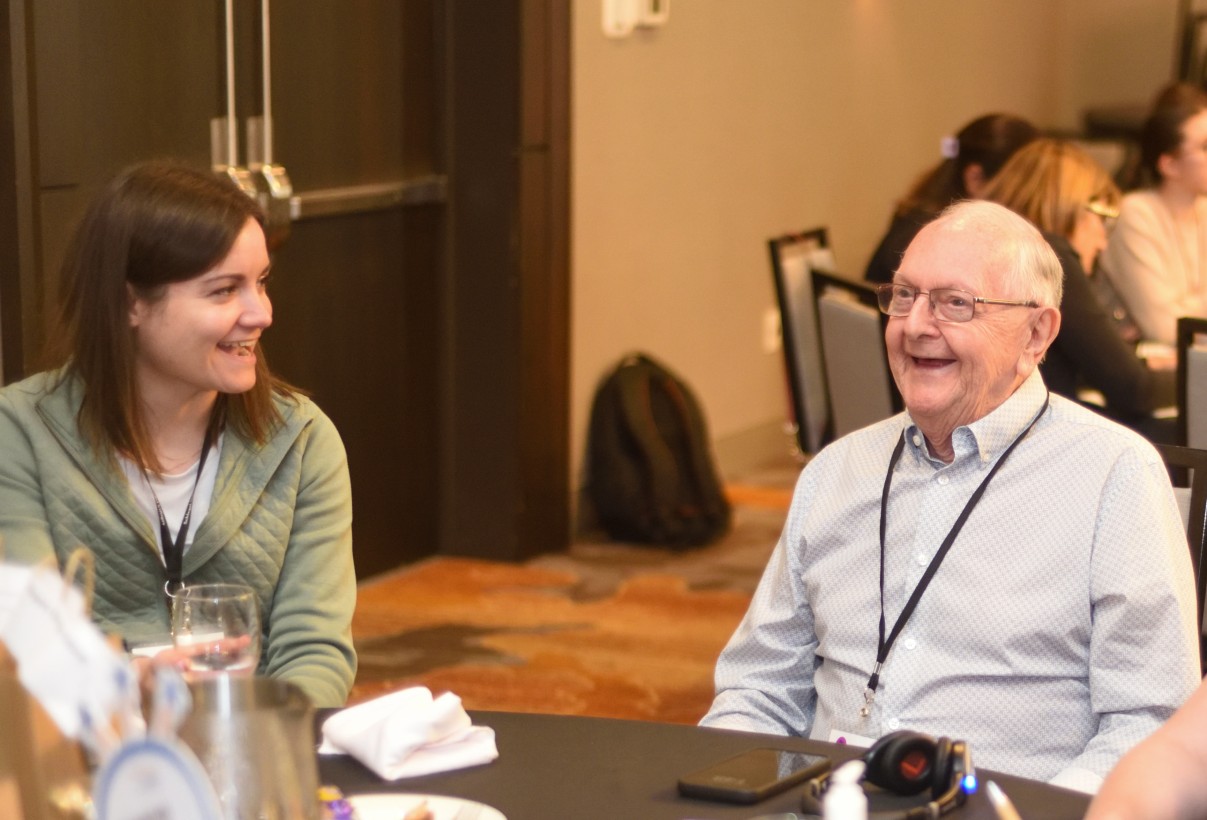If the second day of the annual Schlegel Villages Leadership Retreat was all about the leaders in the room looking outward to their teams to better understand how to support them, Day 1 was meant for introspection – a chance for leaders to examine their own journeys and connect to their own well being.
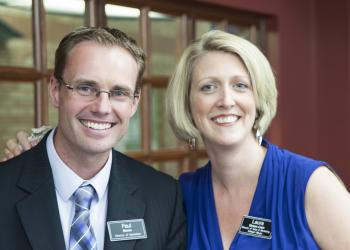
Laura together with Schlegel Villages Chief Operating Officer
Paul Brown. She says it's important that senior leaders in
the organization share their personal stories to
inspire those they serve to be honest about theirs.
When Laura Stokes-Crain began speaking during a breakout session she hosted with Dr. Steve Abdool, director of Homewood Health, she became the epitome of honest vulnerability. The session was titled Caring for the Care Leader in Today’s Health Care System, and it began with Laura’s personal story of transformation that began more than 20 years ago. Today, she is the vice-president of sales and marketing at Schlegel Villages, which she says is the attainment of a proud goal she could never have achieved without a range of support over the years.
She began her story by explaining how she developed a crushing sense of anxiety in her teenage years, where sometimes even the smallest event could set her mind into an overwhelming whirlwind of emotion and worry. It would come from seemingly out of nowhere, and she couldn’t explain it. She was a good student, came from a loving home, had many friends and enjoyed sports.
“There is nothing wrong and I don’t know why I feel like this,” she remembers thinking at the time. “I shouldn’t feel like this.” She struggled on and by university, it worsened and careened out of control. She would become almost paralyzed by her thoughts and there were many days she couldn’t bring herself to face the day.
“I remember feeling that my mind and body were disconnected,” she told the audience. “It was a lot easier to kind of shut myself away.” This is where full-blown depression took over, yet she didn’t really recognize it. This was just her life as she saw it.
She says the basic joys of life meant nothing to her; the rays of sunshine upon her face or the comfort of the morning’s first sip of coffee went unnoticed – she was but a robot. As she entered the workforce, she felt she had learned to cope with this demon, though she’d never sought any formal help. Sometimes the dark voice upon her shoulder was quieter; sometimes it was louder.
She eventually sought clarity in many forms: meditation, alternative therapies, religion, yoga, medications, though nothing seemed to work. One day her manager at work confronted her. “I know you,” he told her, “and you’re not here.”
Tears of emotion welled in her eyes as she continued her story, explaining to the audience this was the first time she’d ever looked at her problem “straight on.” The manager that day sent her home and told her she needed to get well. Alone in her apartment in Toronto she was terrified, paralyzed with fear and not knowing what to do or where to turn. She recalls understanding in those moments why some people choose to take their own life, for she didn’t want to live in that state of mind.
By working with both psychologists and psychiatrists, she eventually found the right medication, which she says she will never stop taking, and she learned to manage her illness. She’s learned to recognize when it is coming for her, she says. She’s named it and she owns it.
Before she passed the microphone to Dr. Abdool, she asked the audience to think about her story. “Next time you see me,” she asked, “knowing that I take medication for this, will you see me differently? Also, will you see me as less capable? People who are going through this, I think that’s what we question a lot.”
Nobody said life would always be fair and just, Dr. Abdool explained after Laura shared her story. Perhaps 10 per cent of life is about what gets thrown in front of us and 90 per cent is “how we react to it.”
The leaders gathered at the leadership retreat must be the stewards of their own journey, as role models and coaches, he said, and like Laura, they can offer themselves to others to help shed light on the fact that life is full of challenges. How one responds to them is what may define their eventual success.
“Be true to yourself, be a gracious person and live those values in all aspects of your life,” Dr. Abdool said, “and you will truly not only be a successful leader, but you will be a very successful traveller in this temporary journey we have on earth.”
After the retreat, Laura reflected on why she chose to share her story and her hopes for what it might inspire.
“As a society we say we need to work at ending the stigma around mental illness,” Laura says, “which is easy to say but hard to do. As senior leaders in the organization, how can we expect our team members to share their struggles if we hide ours? If we want to end the stigma, let’s talk openly about it and show each other that with support you can make it through and achieve great things.
“Sharing your struggles with the people you work with shouldn’t cause shame or embarrassment,” she adds, “and if my story helped one person in that audience feel validated and understood, that it was something they could relate to, if it helped them know that the debilitation caused by depression and anxiety doesn’t need to take over your life completely, then my goal for the day was achieved.”
- Previous
- View All News
- Next

